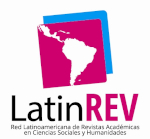TERAPIA E INTEGRAÇÃO SOCIAL: um trabalho da psicologia junto aos autistas
DOI:
https://doi.org/10.47180/omij.v5i2.304Palavras-chave:
Competências cognitivas, Educação, Diversidade, AutismoResumo
O objetivo do artigo é fundamentar a introdução aos fundamentos teórico-metodológicos da terapia social e sua aplicação prática como intervenção grupal, desenvolvida sob a perspectiva marxista pós-moderna e inspirada na teoria de desenvolvimento de Vygotsky. É uma terapia performática ainda pouco conhecida no Brasil. Neste artigo, inicialmente, apresenta-se o percurso histórico de desenvolvimento dessa perspectiva e seus principais autores. Posteriormente, serão apresentados seus conceitos e metodologia e, por fim, sua prática e a forma de trabalho em grupo, marcas registradas dessa terapia. Tendo, em sua proposta, o foco constante na construção da grupalidade e na emancipação, a terapia social tem sido apresentada como possibilidade de trabalho grupal potente na construção da mudança social.
Downloads
Referências
BOCK, A. M. B. A Psicologia a caminho do novo século: identidade profissional e compromisso social. Estudos de Psicologia, Natal, v. 4, n. 2, p. 315-29, 1999. DOI: https://doi.org/10.1590/S1413-294X1999000200008
FRIEDMAN, D. Introduction toward a postmodern marxism. [Texto não publicado, 2009]
GERGEN, K. The emergence of postmodern culture. In: ______. The saturated self: dilemmas of identity in contemporary life. New York: Basic Books, p. 111-38, 1991.
HOLZMAN, L. Vygoskty at work and play. New York: Routledge, 2009. DOI: https://doi.org/10.4324/9780203889916
_____________. Activating postmodernism. Theory & Psychology, Calgary, v. 16, n. 1, p. 109-23, 2006a. DOI: https://doi.org/10.1177/0959354306060110
____________. Lev Vygotsky and the new performative psychology: some implications for business and organizations. In: HOSKING, D. M; MCNAMEE, S. (Eds.). The Social construction of organization. Danska: Liber & Copenhagen Business School Press, p. 254-68, 2006b.
____________. MENDEZ, R. (Eds.). Psychological investigations: a clinician’s guide to social therapy. New York: Brunner-Routledge, 2003.
NEWMAN, F. A therapeutic deconstruction of the illusion of self. In: HOLZMAN, L. (Ed.). Performing psychology: a postmodern culture of the mind. New York/London: Routledge, p. 111-32, 1999
___________. Re-doing the past: a few social therapy success stories and their morals. In: ___________. Let’s develop: a guide to continuous personal growth. New York: Castillo International, p. 77-90, 1994.
__________. Community as a heart in a havenless world. In: ______. The myth of psychology. New York: Castillo International, p. 140-70, 1991.
__________. HOLZMAN, L. All power to the developing. Annual Review of Critical Psychology, v. 3, p. 8-23, 2003.
__________. Beyond narrative to performed conversation (“In the beginning” comes much later). In: HOLMAN, L. (ed.). Performing Psychology, A postmodern culture of the mind. New York/London, Routledge, p. 87-110, 1999.
__________. La relevancia de Marx en la Terapeutica del siglo XXI. Revista Venezolana de Psicologia Clinica Comunitaria, Caracas, n. 2, p. 47-55, 2001.
__________. Lev Vygotsky: revolutionary scientist. London: Routledge, 1993.
PALLARES-BURKE, M. L. G. Entrevista com Zigmunt Bauman. Tempo Social, São Paulo, v. 16, n. 1, p. 301-25, 2004. DOI: https://doi.org/10.1590/S0103-20702004000100015
WITTGENSTEIN, L. Philosophical investigations: bilíngue alemão/inglês. Oxford: Blackwell, 1958.
ZANELLA, A. V. et al. Questões de método em textos de Vygotski: contribuições à pesquisa em psicologia. Psicologia e Sociedade, Porto Alegre, v. 19, n. 2, p. 25-33, 2007. DOI: https://doi.org/10.1590/S0102-71822007000200004
Downloads
Publicado
Como Citar
Edição
Seção
Licença
Copyright (c) 2024 Open Minds International Journal

Este trabalho está licenciado sob uma licença Creative Commons Attribution-NonCommercial-NoDerivatives 4.0 International License.
Os autores declaram que qualquer trabalho apresentado, se aceito, não será publicado em outro meio/lugar, em inglês ou em qualquer outra língua, e inclusive por via eletrônica, salvo mencione expressamente que o trabalho foi originalmente publicado na Revista.













